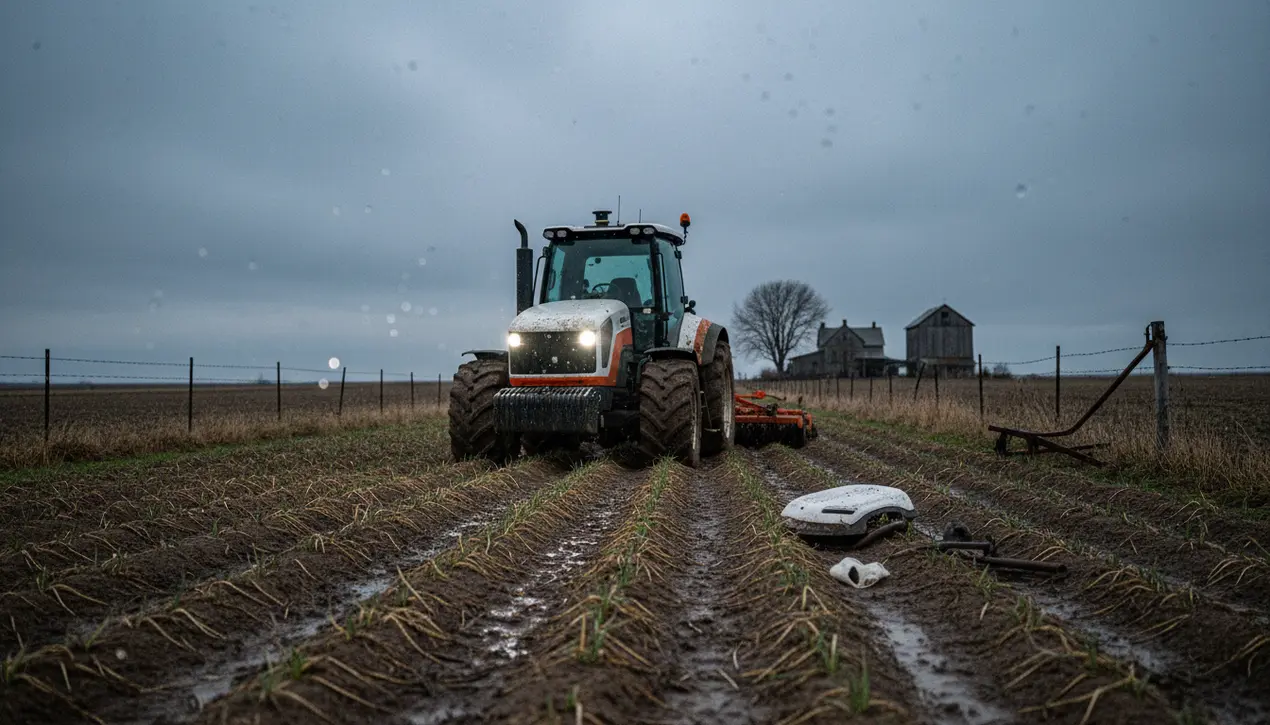
Otherauto & mobilityAutonomous Cars
Monarch Tractor sued over non-functional autonomous farming vehicles.
AN
Andrew Blake
1 hour ago7 min read1 comments
The lawsuit now entangling Monarch Tractor isn't just another piece of corporate litigation; it's a cautionary tale for the entire ag-tech sector, a field I've always found fascinating in its collision of Silicon Valley ambition with the deeply traditional, dirt-under-the-fingernails world of farming. The core allegation is stark: farmers who invested in the company's supposedly autonomous tractors claim the vehicles are, for all practical purposes, non-functional, failing to deliver on the futuristic promise of driverless, data-driven cultivation.This legal action is the latest and most serious problem to crop up for the Livermore-based startup, which had previously garnered significant attention and funding by positioning itself at the vanguard of a new agricultural revolution. To understand the gravity of this, one has to look at the broader context.The push for autonomy in agriculture is a direct response to persistent labor shortages, the relentless pressure to increase yields for a growing global population, and the urgent need for more sustainable farming practices that use less water and fertilizer. Monarch, alongside competitors like John Deere and a host of smaller innovators, pitched its technology as a holistic solution—not merely a self-driving vehicle but a connected data platform that could analyze soil health and optimize entire harvests.The lawsuit, however, suggests a chasm between the slick promotional videos and the on-the-ground reality. According to the plaintiffs, the tractors are plagued by a litany of issues: faulty sensors that fail to perceive basic obstacles, erratic navigation that risks damaging crops, and software that crashes at critical moments, leaving expensive hardware stranded in a field.This isn't just a minor bug; it's a fundamental failure of the core value proposition. When you dive into the history of agricultural mechanization, from the horse-drawn reaper to the modern combine, reliability has always been the non-negotiable cornerstone.A farmer's livelihood depends on equipment that works during the narrow, critical windows of planting and harvest. A tractor that can't be trusted is worse than no tractor at all—it's a massive, depreciating liability.Expert commentary from the sector points to a common pitfall for tech startups: the underestimation of the agricultural environment. A controlled test on a pristine field is one thing; navigating the unpredictable, muddy, and debris-strewn reality of a working farm is another entirely.The complex interplay of hardware durability and sophisticated AI perception in such conditions presents a monumental engineering challenge. The possible consequences of this lawsuit extend far beyond Monarch's balance sheet.It could trigger a wave of investor skepticism towards similar ag-tech ventures, tightening capital for a field that desperately needs innovation. Furthermore, it risks eroding farmer trust in precision agriculture technologies at a time when their adoption is crucial for environmental and economic sustainability.Regulators, who have been cautiously observing the autonomous vehicle space, may now feel compelled to step in with stricter certification processes for self-driving farm equipment, potentially slowing down the entire industry's development. Analytically, this situation feels like a classic case of a 'minimum viable product' philosophy crashing into an industry where 'viable' has a much, much higher bar.The narrative isn't just about a broken promise; it's about the cultural clash between the iterative, fast-fail mindset of tech and the zero-fail tolerance of agriculture. The outcome of this legal battle will likely serve as a pivotal case study on whether the aggressive timelines of venture capital are compatible with the painstaking, real-world validation required to truly transform one of humanity's oldest professions.
#Monarch Tractor
#lawsuit
#autonomous vehicles
#false advertising
#startup
#legal action
#farming tech
#featured
Stay Informed. Act Smarter.
Get weekly highlights, major headlines, and expert insights — then put your knowledge to work in our live prediction markets.
Comments
Loading comments...
© 2025 Outpoll Service LTD. All rights reserved.